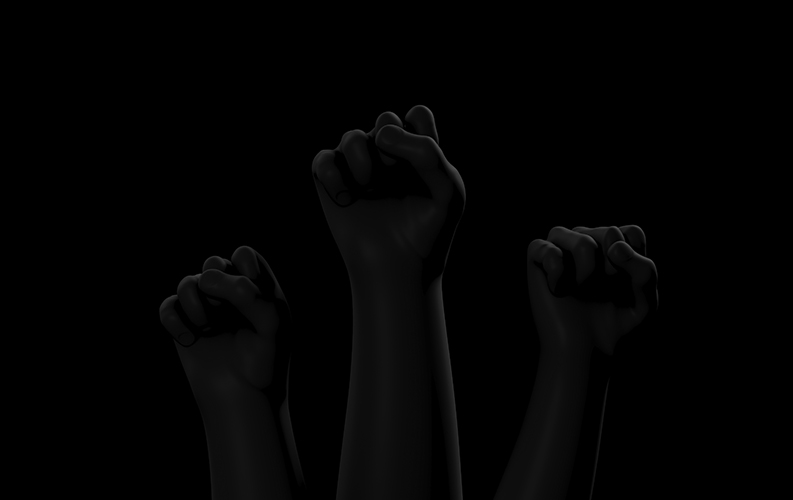We hear countless examples of Black heroes saving the day: Dr. Martin Luther King Jr., Harriet Tubman, and W.E.B. Du Bois, to name a few. But what about the Black heroes of the Bible who have gone unnoticed? This might come as a surprise to some, but the Bible is a multicultural, multiethnic book. Black religious leader Richard Allen put it best: “God doesn’t segregate, humans do.”
God isn’t a respecter of persons, He honors the faithful heart. So, this Black History Month, instead of pointing to notable figures of Black excellence, let’s look at the Holy Book for divine inspiration and wisdom that flows through the generations. We can learn so much from these unsung Black Bible heroes about the racial justice issues that face us today.
Ebed-Melech: Be Radical in the Fight for What’s Right

Ebed-Melech was an Ethiopian official in King Zedekiah’s court who rescued the prophet Jeremiah from a bleak death in a muddy pit (Jeremiah 38:7-13).
The quick backstory:
When Jeremiah, a messenger of God’s justice and grace, came to warn the land of Judah of its upcoming demise as the result of persistent idolatry and lawlessness, as you can imagine, it didn’t go over well.
Zedekiah was the last king of Judah, and he was much like the people of his land: desired God’s blessings, but had a heart closed to obedience. When the royal court viewed Jeremiah as a threat to Judah, the King was eventually persuaded to have him offed.
Jeremiah was dropped into a muddy pit and left to die of thirst, hunger, or suffocation, whichever came first.
Enter Ebed-Melech:
When Ebed-Melech heard what the royal court members had done, he immediately went to the king and pleaded with him:
“My lord the king, these men have acted wickedly in all they have done to Jeremiah the prophet. They have thrown him into a cistern, where he will starve to death when there is no longer any bread in the city”
(Jeremiah 38:9, NIV)
Ebed-Melech’s petition was honored in two miraculous ways. First, the King gave him a contingent of 30 men to rescue the prophet from the hole. And second, God blessed Ebed-Melech with his own protection, telling Jeremiah to send him a message of assurance that’d he’d be spared. Although Ebed-Melech was a gentile, God honored his bravery and kept him from being killed when the Babylonians came to destroy Jerusalem (Jeremiah 39:18).
Today’s lesson:
When our brothers are helplessly persecuted, we must use any authority or privilege we might have to protect them. When injustice is rampant, we must ramp up our moral obligations. To be radical is not to rely on the world around you to right wrongs, but to stand up as one person, doing the right thing even when it’s risky or unpopular, to create a hopeful future for someone else.
Simon of Cyrene: Bear One Other’s Burdens

Witness to one of the most prominent historical moments, Simon of Cyrene (modern-day Libya) carried the cross behind Jesus and served Him in his final hour (Luke 23:26).
The quick backstory:
Jesus of Nazareth was wrongfully charged with treason against Rome, a punishment that resulted in crucifixion. On the morning of Good Friday, Jesus is mocked and scourged by soldiers and forced to carry a crossbeam to the execution grounds on the hill of Calvary, just outside Jerusalem’s city walls.
Enter Simon of Cyrene:
In the Book of Mark, Simon of Cyrene is named and introduced (Mark 15:21) — a sign that he was central to the crucifixion story. So, who was Simon? A passerby and father who brought his two sons to celebrate the Passover celebration in Jerusalem.
But he was not just another passerby. He was named, and he was pulled from the crowd to carry the cross behind Jesus. This is perhaps the first example of real Christian discipleship as a response to the message Jesus gave his would-be followers just ahead of his arrest:
“Whoever wants to be my disciple must deny themselves and take up their cross
daily and follow me.”
(Luke 9:23, NIV)
Today’s lesson:
One of the most important things we can do as Christ’s followers is bear not only our burdens, but the burdens of others; even to provide brief respite. Many deal with the heavy cross of racism and injustice that they never asked to carry, and although that cross may look different than our own, it doesn’t mean it isn’t our burden to bear. Simon was a father who likely had his own share of struggles, but he stepped up to the plate and made the heaviest burden lighter for our Savior.
Zephaniah: Behold the Day of the Lord

The prophet Zephaniah, son of a Cushite, is the Bible’s poster child for the “Day of the Lord” gospel. The Book of Zephaniah mentions the day of the Lord more than any other book in the Old Testament.
The quick backstory:
Again, we’re brought back to the land of Judah and its impending fall to Babylon. The people of Judah have turned their backs on God, resulting in God’s wrath on their land and ultimate demise.
Enter Zephaniah:
Zephaniah’s message of restoration and hope, of Godliness and purity, was meant to shake up a nation that had fallen over to darkness:
“The Lord your God is with you, the Mighty Warrior who saves. He will take great delight in you; in his love he will no longer rebuke you, but will
rejoice over you with singing.”
(Zephaniah 3:17, NIV)
He made it his mission to open people’s eyes to God’s judgment and hope for their land.
The lesson?
In a nation hurting for revival yet plagued by sinful hearts, we must always remember to look to God for our ultimate restoration. Sometimes when we attempt to fix the problems that only God can, we leave it in destructive hands. The Word of God is above humanistic thinking and principles; His Word has the final say. We need only to be prayerful enough to let Him move through our hearts and this nation.






